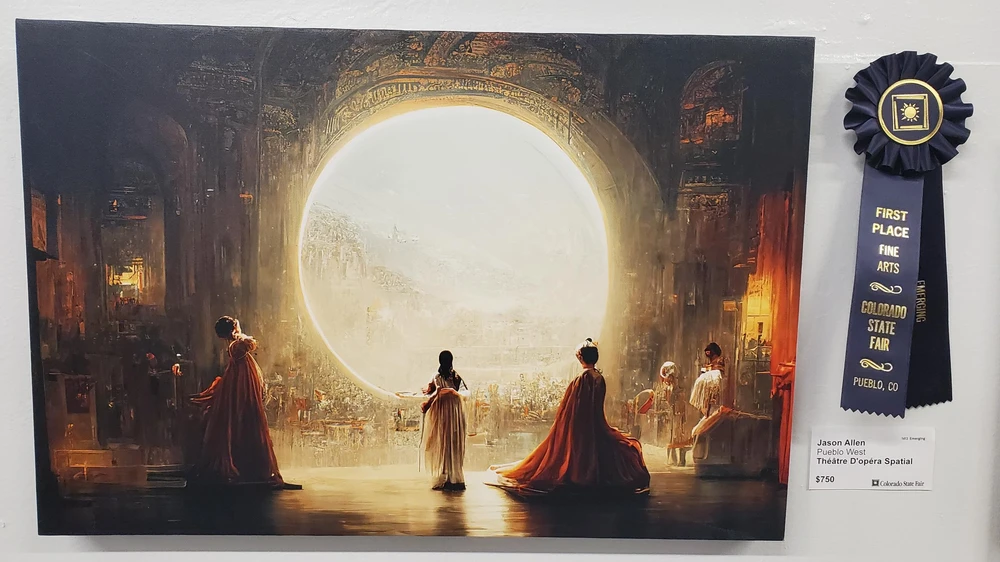Art & Tech
An A.I.-Generated Artwork Won First Prize at a Colorado State Fair. Human Artists Are Infuriated
Some are decrying "the death of artistry."

Some are decrying "the death of artistry."

Dorian Batycka

Artists in Colorado are up in arms over the first-prize winner at the annual state fair’s art competition: a digital collage made by artificial intelligence.
The work, titled Théâtre D’opéra Spatial, is attributed to Jason Allen via Midjourney, which cites the name of the program used to blend different images and the artist who entered the resulting work into the competition.
The winning result consists of an ornate, though strangely relatable, Baroque landscape populated with classical figures and an almost heavenly light.
“Technology is increasingly deployed to make gig jobs and to make billionaires richer, and so much of it doesn’t seem to benefit the public good enough,” cartoonist Matt Bors told the Atlantic, referring to A.I. art programs like Midjourney. “A.I. art is part of that. To developers and technically minded people, it’s this cool thing, but to illustrators it’s very upsetting because it feels like you’ve eliminated the need to hire the illustrator.”
Nevertheless, artists online are raging. “We’re watching the death of artistry unfold before our eyes,” a Twitter user chimed in. “If creative jobs aren’t safe from machines, then even high-skilled jobs are in danger of becoming obsolete. What will we have then?”
“I knew this would be controversial,” Allen said in his own Discord server on Tuesday, responding to his critics. “How interesting is it to see how all these people on Twitter who are against AI generated art are the first ones to throw the human under the bus by discrediting the human element! Does this seem hypocritical to you guys?”
Allen, who is president of Colorado-based tabletop gaming company Incarnate Games, added that he believes his work is a natural extension of his own creativity. After all, he sets the parameters in which the A.I. creates; afterward, he processes them in Photoshop and then finishes them in Gigapixel.
“I have been exploring a special prompt that I will be publishing at a later date, I have created 100s of images using it, and after many weeks of fine tuning and curating my gens, I chose my top 3 and had them printed on canvas after unshackling with Gigapixel AI,” he wrote in a post before the winners were announced.
It’s not only artists who feel they are being sidelined by A.I. Earlier this year an A.I. named Jarvis curated the Bucharest Biennial. It was developed by Deraffe Wien and led by Răzvan Ionescu, a Romanian software engineer who programmed the algorithm to select artists and develop a curatorial concept around a number of parameters set to a theme he selected.